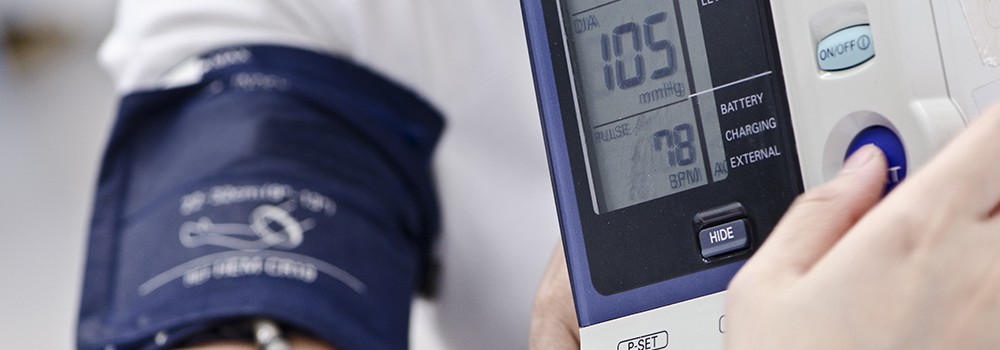- +1 907 375 5200
- Mon - Fri: 8:30a - 4:30p

Hypertension is the medical term used to describe high blood pressure. Hypertension is the second most common cause of Chronic Kidney Disease (CKD) and progression to End Stage Renal Disease (Kidney Failure) with diabetes being the most common cause for Chronic Kidney Disease and progression to End Stage Renal Disease. At the same time, about 80% of patients with chronic kidney disease will eventually develop hypertension.
As we know, the largest function of the kidneys is to “filter out” the blood stream. Beyond this, the kidneys also help us regulate other processes in the body. One of these processes is blood pressure. Thus, the kidneys have the ability to raise or lower your blood pressure and accomplish this by releasing a hormone called Renin. Renin’s job, once released from the kidneys, is to trigger a cascade of other hormones with the end result being constriction of your blood vessels. This hormone cascade system is known as the Renin-Angiotensin-Aldosterone System (RAAS).
The kidneys release renin in response to sensing decreased blood flow to their functional units, the glomeruli (the kidneys are composed of millions of these functional units which are the small “filters” that clean out the blood stream). In Chronic Kidney Disease (CKD), there is an increased loss of these filters beyond the normal loss we all experience beyond the age of 40. This loss of functional units can contribute to elevated blood pressure over time, but high blood pressure in itself can precipitate further loss of functional units. A unique situation.
Many of the medications that combat high blood pressure work by inhibiting certain components of the RAAS system. In turn, by utilizing these medications, we can effectively lower blood pressure and also increase renal (kidney) protection which is the goal in CKD.